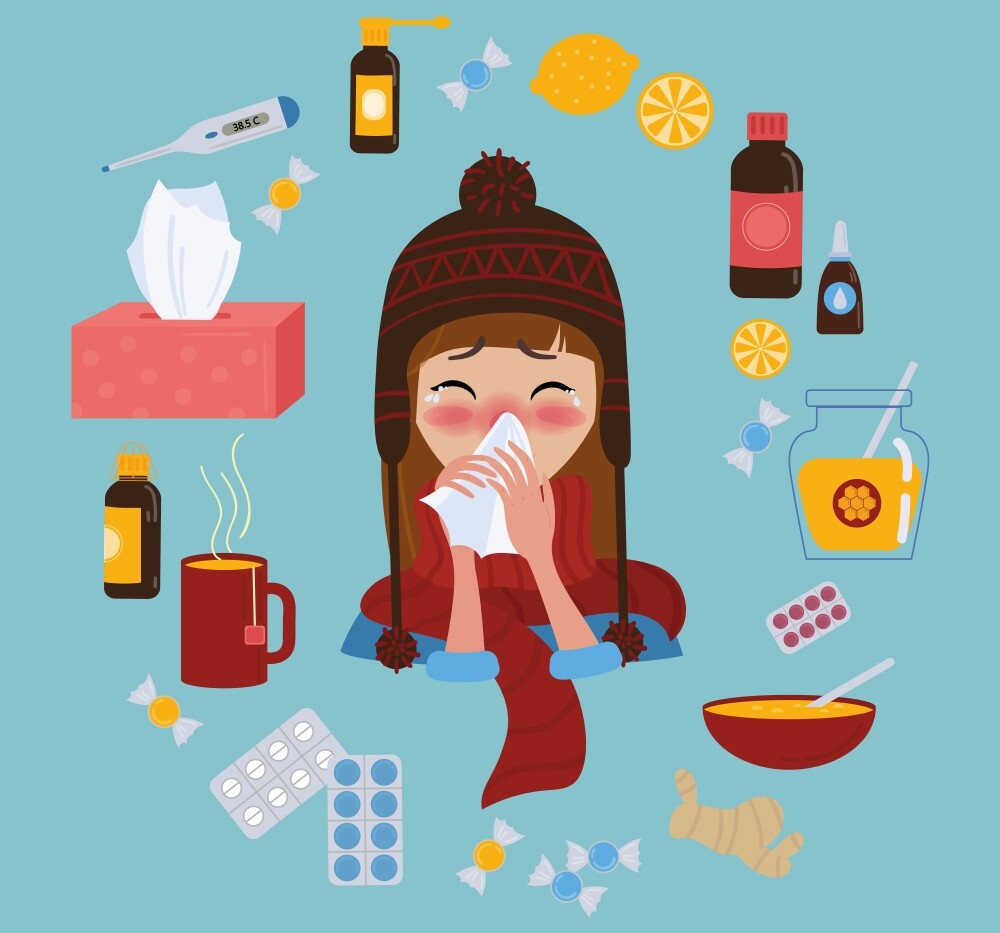In the cold and wet season the danger of catching a cold increases. Whether over the smallest droplets or an ill-considered handshake – the possibilities of catching a cold are manifold.
Flu or influenza?
Summer is over, the cold season is dawning – and sooner than expected we are plagued by sore throats, coughs or hoarseness. At first glance, the symptoms of a flu-like infection or influenza are quite similar, but in the end the diseases are caused by different pathogens. For example, there are about 200 different types of viruses, such as adeno-, rhino- and corona viruses, which cause a cold. Bacteria play a rather subordinate role as the trigger of the disease. But beware! In the course of a flu-like infection, a second bacterial infection may well occur. A flu, however, is only caused by the influenza virus, which can change constantly. An annual booster of the protective vaccination helps against the latter.
Causes of contagion
Whether it’s a handshake or just a sneeze: the risk of infection is especially high in the autumn and winter months. Mostly we catch a cold from infected droplets that are coughed up or sneezed into the air. When droplets are infected, a healthy person absorbs viruses via the respiratory tract, causing swelling of the mucous membranes of the nose and throat. If the immune system is already weakened, this promotes the disease. However, direct contact with the infected person naturally also has a detrimental effect on the body. The viruses reach the mucous membranes of the mouth, eyes and nose via the hands and then enter the body. In fact, smooth surfaces are also considered to be the trigger of the disease: door handles, keyboards, telephone receivers or handles in public transport can become real germ cells for cold viruses.
These factors make a cold more likely
Those who have an intact immune system are usually less susceptible to catching a cold. However, if you are a little weakened, then the cold, which usually heals after seven to ten days, is inevitable. But what exactly causes the body to be weakened? Typical factors are stress, psychological strain, lack of sleep, unhealthy diet and excessive alcohol consumption. You should also avoid large crowds of people, especially when acute cold waves are circulating. In addition to these factors, there is of course also a connection between cold and a cold – even if the former is not the only trigger for the illness. Cold drives us into buildings where the heating air is a risk factor. It dries out the mucous membranes and impairs our defence functions against pathogens.

